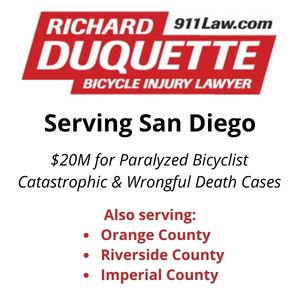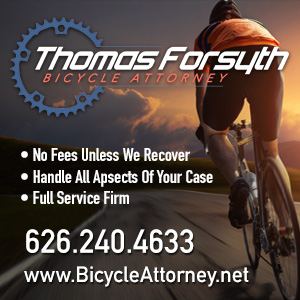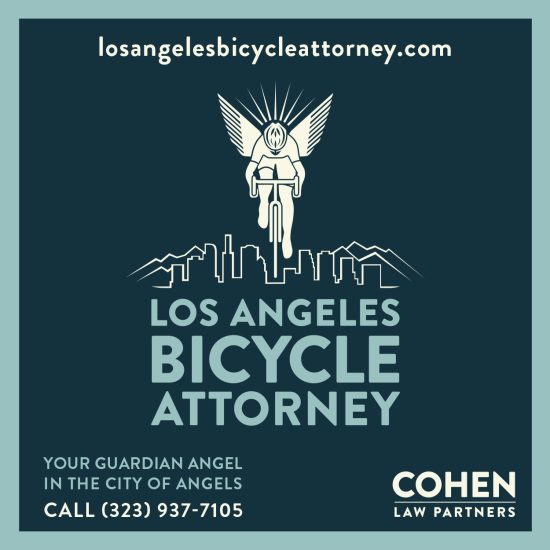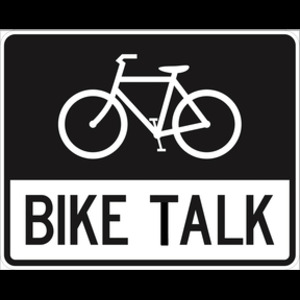You’d think that I would have gotten good at riding hills when I lived in Colorado.
But pretty much anything east of the Front Range — that long wall of mountains that marks the east face of the Rockies — is about as flat as Kansas. So it wasn’t until I moved to the hills and valleys of San Diego that I really learned how to climb.
Even a simple ride up the coast north of the city meant at least one major climb along the east side of Torrey Pines State Reserve to get back home.
There was a another shorter, but far steeper route through the park, though. And as I developed my skills by hammering up that long sweeping climb outside the park, I promised myself that one day I’d be good enough to take on that other, more challenging route.
So after months of hard effort, it was finally time to give it a try.
I failed. Or more precisely, I made it, but only after the most excruciating climb I’ve ever inflicted on myself.
I cracked about halfway up — hitting that point where it was too much effort to go forward, and any rational solution person would turn back and try again another day.
But I’ve never claimed to be rational.
Maybe it was old-fashioned determination, or just plain old pig-headedness. But I had set a goal and I was going to make it or die trying. And considering the pounding in my chest, the latter seemed like a real possibility at the time.
So I forced myself to turn the cranks just one more time, followed by another. And another.
By the time I was three quarters of the way up, my body was screaming in pain, and every crank of the pedal was harder than the last. Finally, I began to whisper under my breath with every stroke, saying “Don’t quit.”
“Don’t quit.”
“Don’t quit.”
Or I thought I was under my breath, anyway. Because when I finally took that last painful stroke and rose over the crest, about a dozen people standing around at the top broke into a round of applause.
I was embarrassed as hell. So I gave a weak wave — the best I could muster at the moment — and continued on my way, blushing from head to toe as I rode off.
Yet they also made me feel like I’d just won the Tour de France.
Even now, I look back at that with a mixture of embarrassment and pride. Because it took everything I had just to get up that hill. And a group of total strangers not only noticed, but applauded those efforts.
And that feels pretty damn good.
I was thinking about that today beacause Patrick Pascal forwarded a link to the UK’s Guardian’s bike blog, which discusses a series of videos posted online by French prankster Rémi Gaillard. In them, he establishes a faux finish line along a popular cycling route, and treats an unsuspecting cyclist like he’s just won a hard stage on the Tour de France.
I can’t help but smile as I watch. And mentally put myself in the place of that anonymous rider.
In these days, when it feels like we have to fight for every inch of asphalt, and endure the taunts, insults and often painful indignities inflicted on us by a moronic minority of motorists, it feels good to have someone acknowledge the effort we put into it — even if it is just a prank.
Because we do a lot of good.
Every cyclist riding to work or doing errands on their bikes means one less car clogging our streets and fouling our air — something you’d think even the most impatient driver would appreciate.
Despite the frequent calls to register and tax us, we have virtually no impact on the roads. And the cost of cycling infrastructure represents just a minute fraction of overall transportation and road funding.
And everyone who gets out on a bike — not matter why they ride, how far or fast — is doing their part to improve their own health and fitness. Which benefits society in countless ways, measurable and otherwise, from lowering healthcare costs to lifting the mood of our current malaise.
So maybe we do deserve a round of applause.
Not for winning a stage or making it up a hill, but just for being out there pushing pedals when so many others aren’t. When you could be sitting at home packing calories on instead of pounding them off, or out burning fossil fuels instead of carbs.
So next time I see a cyclist fighting her way through traffic or struggling up a hill, I’m going to give her — or him — a thumbs-up. Or maybe break into a spontaneous round of applause.
Because you’re out there making our world a better place.
And what could possibly be wrong with that?
……….
The first review is in on the new bike plan, and not surprisingly, it comes from Stephen Box. And the verdict is: thumbs down. Speaking of which, new bike lanes have finally appeared on Reseda Blvd. Taking Damien’s place on Streetsblog for the day, Stephen also reports on Sunday’s Crenshaw Crush ride. LACBC offers a look at what a 4th Street Bike Boulevard could be. A look at artistic bike racks in Downtown L.A. The latest side-effect of the growing bike community is an increase in bike thefts, as well as parts and accessories. A new iPhone app lets you snap photos of road problems, and forwards them to the appropriate authorities. Kill a cyclist in Arizona, get fined $254. Austin offers a preview of what to expect from David Byrne on Friday. Does it surprise anyone to learn there’s a gender gap in media cycling stories? Minneapolis’ mayor moves forward with plans to make bikes more welcome. Evidently, the fixie fad has officially peaked. Nashville is looking for artists to design new bike racks. Vancouver cyclists ride to say thanks for the bike lanes. The new Welsh bike share program hits a snag the first weekend. Finally, congratulations to Damien and Marybeth — and welcome to the world Samuel Lee Newton. We’ll try to leave it in a little better shape than we found it.





